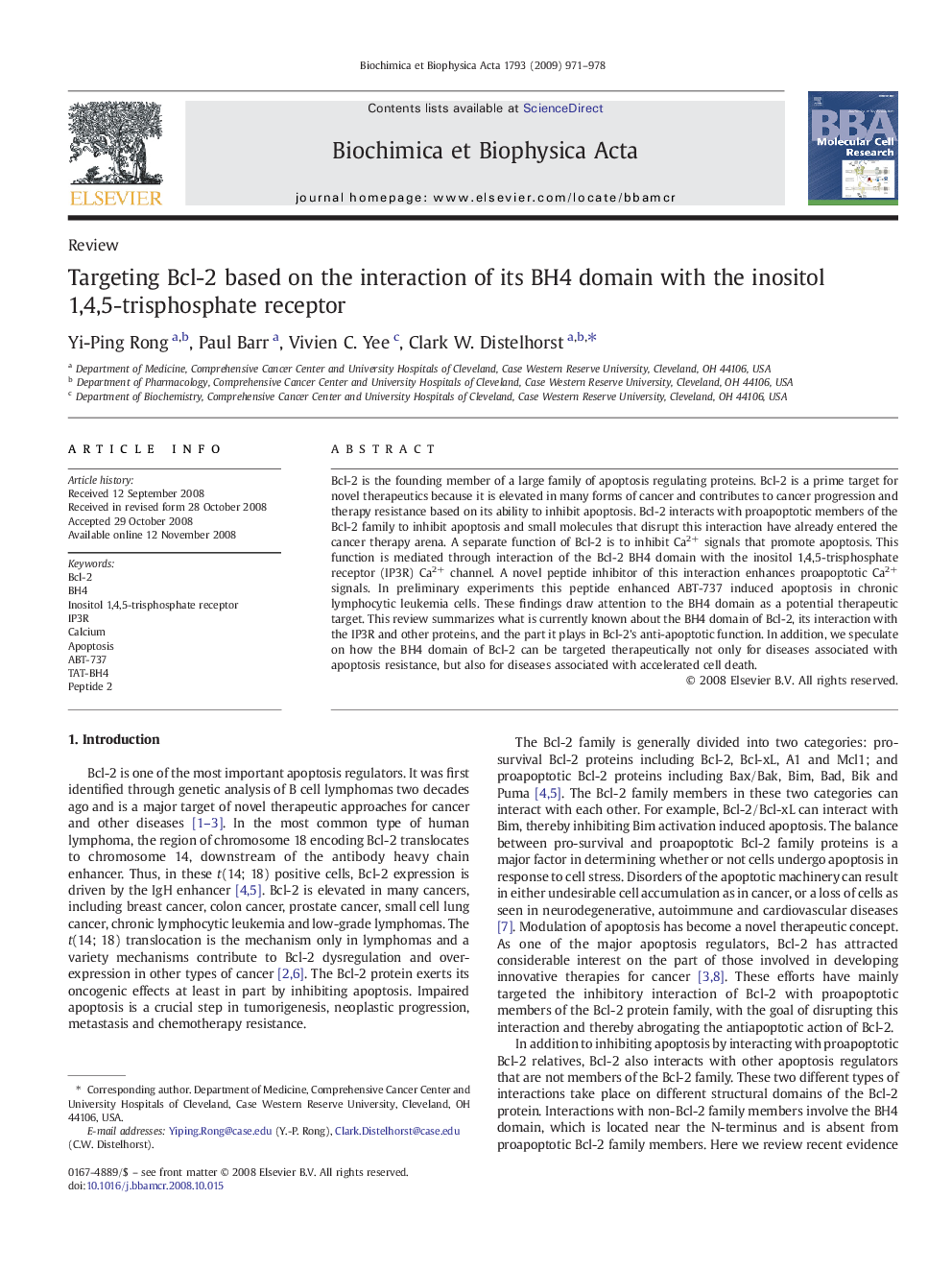| Article ID | Journal | Published Year | Pages | File Type |
|---|---|---|---|---|
| 1951144 | Biochimica et Biophysica Acta (BBA) - Molecular Cell Research | 2009 | 8 Pages |
Bcl-2 is the founding member of a large family of apoptosis regulating proteins. Bcl-2 is a prime target for novel therapeutics because it is elevated in many forms of cancer and contributes to cancer progression and therapy resistance based on its ability to inhibit apoptosis. Bcl-2 interacts with proapoptotic members of the Bcl-2 family to inhibit apoptosis and small molecules that disrupt this interaction have already entered the cancer therapy arena. A separate function of Bcl-2 is to inhibit Ca2+ signals that promote apoptosis. This function is mediated through interaction of the Bcl-2 BH4 domain with the inositol 1,4,5-trisphosphate receptor (IP3R) Ca2+ channel. A novel peptide inhibitor of this interaction enhances proapoptotic Ca2+ signals. In preliminary experiments this peptide enhanced ABT-737 induced apoptosis in chronic lymphocytic leukemia cells. These findings draw attention to the BH4 domain as a potential therapeutic target. This review summarizes what is currently known about the BH4 domain of Bcl-2, its interaction with the IP3R and other proteins, and the part it plays in Bcl-2's anti-apoptotic function. In addition, we speculate on how the BH4 domain of Bcl-2 can be targeted therapeutically not only for diseases associated with apoptosis resistance, but also for diseases associated with accelerated cell death.
